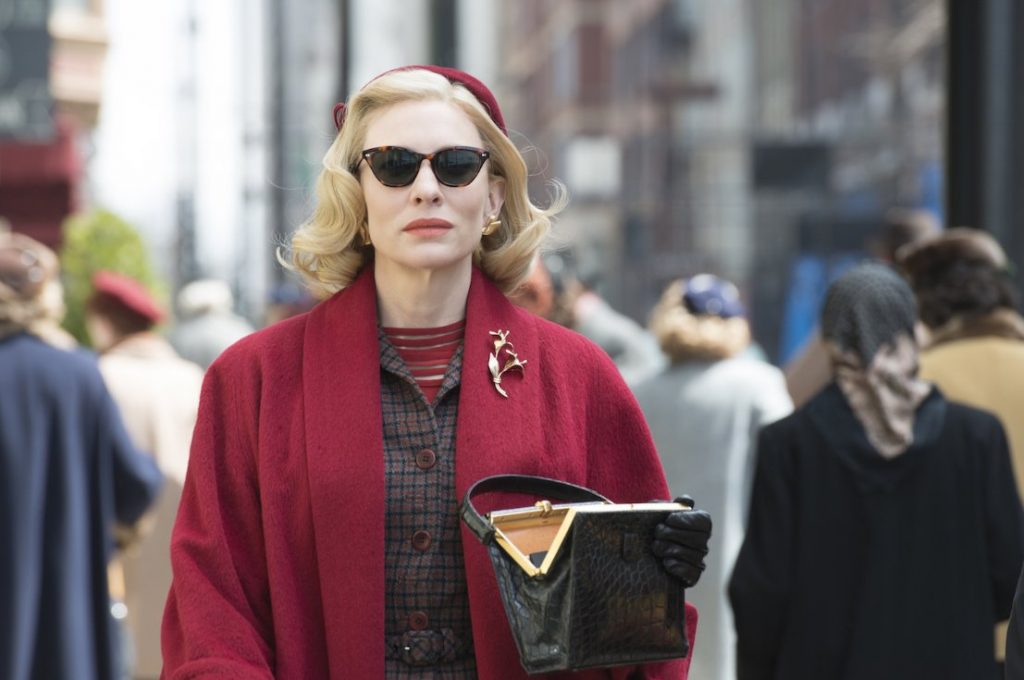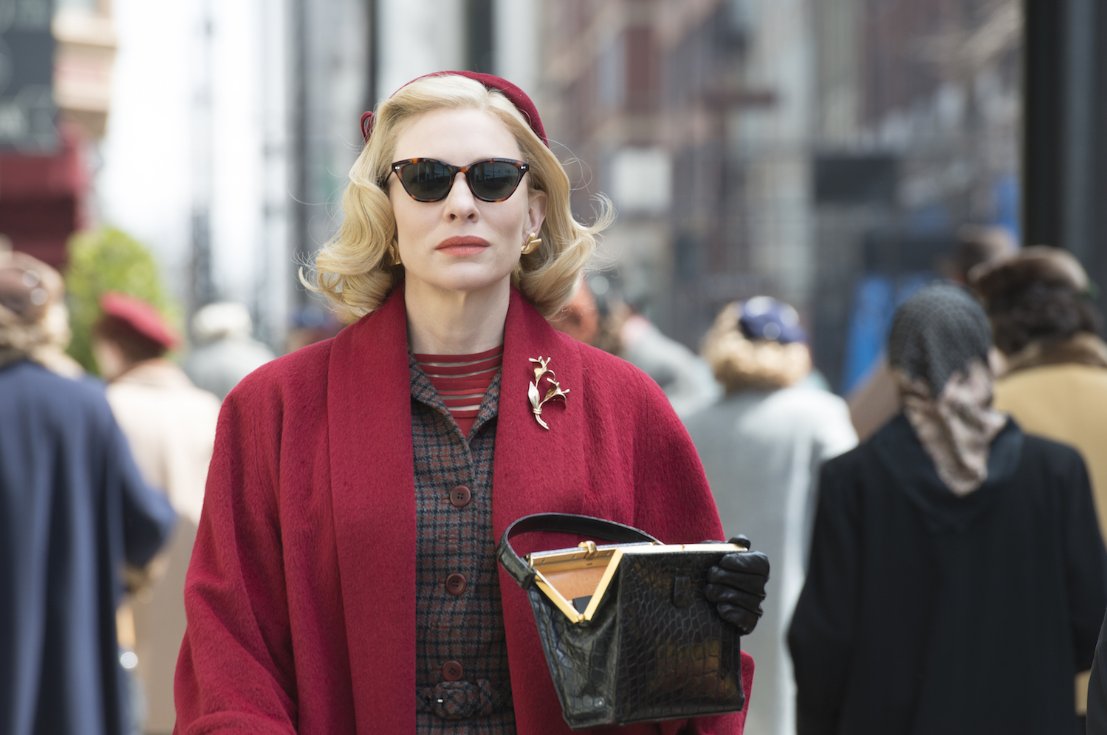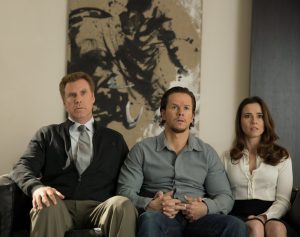The thing about most great romances, and romantic films in particular, is how much they rest on what is implied, and how they can fit maximal meaning into minimal gesture. There is plenty of nominal romance in film, but like every shoehorned romantic subplot in a large blockbuster, it often lacks that spark that makes it all believable and true, telegraphed so obviously that no one could mistake it for the real thing. To watch even just the first scene in Carol, then, is to take a lesson in how to convey that subtlety.
The film begins with Jack, who while waiting for his friends in a restaurant catches a glimpse of an old friend, Therese. As he walks over, he sees an older woman, Carol, sitting across from Therese. We see this meeting from Jack’s perspective, and as he obliviously calls for Therese and puts his hand on her shoulder, we know that he has interrupted something. In an instant, we forget all about Jack, as the tension between these two women is far more interesting than what he has to offer, and from these first few minutes we have a hint that we are seeing a master at work.

IMDb
Carol then takes us back a few months. Therese works in a department store, and one day near Christmas time she meets Carol, who is looking for a present for her daughter. They speak – again, only briefly – and the mood of the film suddenly changes. Therese is no longer sure how to do her job, but Carol, in all of her wealthy New York housewife mystique, keeps her cool. As she leaves, Therese notices that she has left behind her gloves, the kind of accident that could have only been intentional. Naturally, one thing leads to another: a lunch date, a weekend together, a road trip to nowhere in particular, but then also treachery and disappointment. Therese, caught in the whirlwind of romance, is never entirely sure what it is she wants or what she’s looking for, while Carol is hiding from a few problems of her own, all too concrete and precise.
Carol is the first film in almost ten years from director Todd Haynes (HBO’s Mildred Pierce notwithstanding), and it hits upon several of his trademarks: it’s a lavish mid-century period piece overflowing with beautiful costuming and lush imagery, focusing on the inner lives of queer characters with a sprinkling of social consciousness to enliven the proceedings. What it does away with, enjoyably, is Haynes’ penchant for downer endings — there are no tragic lesbians to be found here, but instead one of the most triumphant closing sequences in any film this year, though it may just be Therese walking across a room. It showcases his sensibility wonderfully, marrying a very classic Hollywood feel and format with modern aesthetic and social sensibility — Carol, though it premiered just a few weeks before Obergefell v. Hodges, isn’t just a topical movie, but one that stands on its own merits. If Haynes wasn’t already one of the today’s best working directors — and he should be with the likes of Safe and I’m Not There under his belt — he’s certainly become a contender.
Of course, credit must be paid to Rooney Mara and Cate Blanchett. Their performances are both accomplished, but quite different; Mara is the meek ingénue, keeping everything behind a veneer of innocence except for a few key moments when the levee breaks open. Blanchett, well, does the Cate Blanchett thing, taking control of every eye in the theater, crystallizing every emotion down to its essence before she lets it loose. The pair’s performances, filled as they are with subtle gestures and expressions, are the meat of the film, and fully deserve the praise they have been receiving since the film’s release.
A common criticism of Carol is that it’s a cold film, too focused on capturing the luscious costumes and sets and maintaining too distant and clinical a camera to really capture the romance between its two characters. It’s said that the film may be technically pristine, but the emotion is lost beneath the calculating, perfectionist attitude of the cast and crew. This is bitter counter-hype — there were precious few films in the last year that could manage to convey intimacy and love as convincingly as Carol does. It is the kind of film that invites skepticism because there is nothing it does not do well, and it never resorts to cheap tactics. The truth is that we are used to the cheap blockbuster romance; we’ve been fed that weird lie for so long that the better product feels wrong. Many were dismayed last week when Carol failed to secure a Best Picture nomination at the Oscars, but maybe that is just as well. Unlike the desperate baiting of, say, The Revenant or Brooklyn, Carol doesn’t need to lust after glory. It is simply glorious already.






Hear, hear!